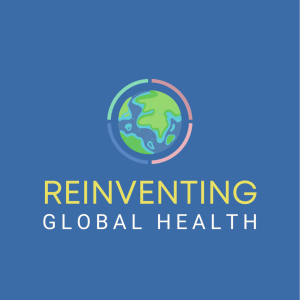
Thursday Feb 09, 2023
Global Health and Chronic Diseases - with Julieta Gabiola, MD
Main points
- Importance of chronic diseases in global health: (1) definition of chronic diseases, (2) their burden (morbidity and mortality are rising: 75% rule, premature deaths, in LMICs, preventable, economic impact, risk factors (example: poverty).
- Definition of chronic diseases.
- Challenges: (1) The fact they are asymptomatic for some time, (2) They are less “sexy”, (3) Misalignment of funds (compared to acute diseases), (4) Low and Medium Income Countries with less resources and not as well-equipped. Example of diabetes.
- Priorities: Investment mobilized toward (1) Training and education, and (2) Research in risk mitigation and prevention (behavior change).
- Personal example: (1) Historical background of medical mobile clinics (MMCs), (2) Missions (5,000 people per day, real impact?), microscopic and telescopic views, (3) Four platforms for ABCs: (a) Treatment, (b), Prevention by early screening and mitigation of risk factors, (c) Education of workers, students, public, and (d) Research. Launched in 2016. Telemedicine.
- Phenomenal results of MMCs: Efficiency, low cost, and prevention of the downstream consequences of chronic diseases.
- Impact of missions: Triage, preparation starts a year ahead of time, ROI?
- Obstacles to scaling: Cost (a kit costs $500), one gadget per community (vision: 1 per person by showing data of cost-effectiveness.
- Description of a mobile clinic (website: https://www.abcsforglobalhealth.org/). Only outreach program in the Philippines equipped with an Electronic Medical Record device (4 years of data). Problem of internet access and power supply in rural areas. In 4 communities. Upswing during COVID.
- Partnership with local healthcare structures: A big challenge. With universities and colleges: Going very well. Limited funding is a challenge. Night and day when compared to what was available before. Results at the individual level are fantastic. Public health level results: Available and they show tremendous results. Also decreases poverty and it can be scaled in the country and globally.
- Maintenance: Not the costliest aspect. 60 to 70% of the cost is due to salaries
- Global health trends for chronic diseases: WHO / Millennium Development Plan Targets for 10 years are not achieved. No practicality in the matter. The missing link is the connection with the people.
- Waste is more prominent in developing countries.
- Mobile technology should be embraced and emphasized.
- Advice for students: Have heart to serve.
BIO
Dr. Julieta Gabiola is a Clinical Professor of Medicine at Stanford University. She is an Educator’s for CARE faculty, teaching the Practice of Medicine at Stanford Medical School, while mentoring medical students longitudinally. She is involved in mentoring medical students with their MedScholar projects with focus on global health outreach programs. Her specialty is Internal Medicine with interest in chronic diseases like Hypertension and Diabetes. She is a Stanford CIGH faculty fellow.
She practices Internal Medicine at Stanford Express Care, involved heavily in her foundation, ABC’s for Global Health with a mission to improve chronic disease management and outcomes in Filipinos in the Philippines and in the US. She collaborates with hospitals and universities in the Philippines to mitigate disparities in health care and improve health care access. She has partnered with institutions in the Philippines in research and health education. She provides opportunities for global health immersion in the Philippines to students from high school to medical school. She co-authored an interdisciplinary textbook in clinical assessment, published by Pearson. This book is poised to provide clinical assessment tools to various disciplines like medical students, nurse practitioners, physician assistants, and other paramedical practitioners. She was also one of the authors for DISRUPT, a book by Filipina leaders with the idea that in order to effect change, we must be willing to disrupt the status quo.
Most recently, she was instrumental in launching the first medical mobile clinic in Pampanga, Philippines with a vision to promote community outreach programs, continuity of care, education, prevention and research in health care. Focus is on improving health outcomes in chronic non- communicable diseases and decreasing health disparity. Specific target populations are: disenfranchised population with chronic cardiovascular diseases with limited access to care and the indigenous population (AETAS tribes).http://www.abcsforglobalhealth.org
She is now involved with the planning and execution of Stanford Digital MedIC in the Philippines where academic institutions and non- profit organizations partner with Stanford to enhance digital medical education.http://www.digitalmedic.com
Comments (0)
To leave or reply to comments, please download free Podbean or
No Comments
To leave or reply to comments,
please download free Podbean App.